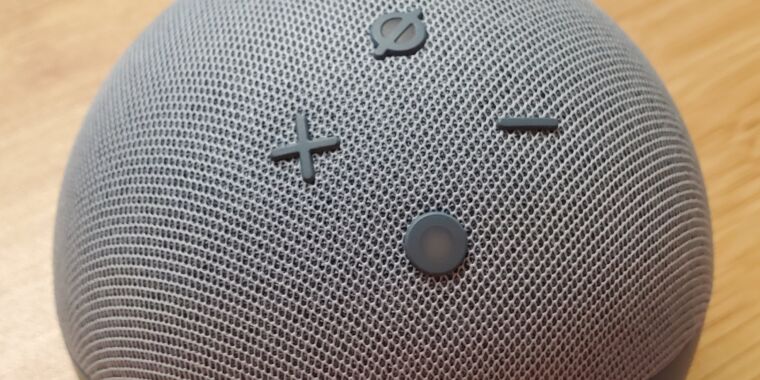What Quantum Computing Will Mean for the Future Artificial Intelligence
Today's artificial intelligence (AI) systems are only as good as the data they are trained on. The AI industry is currently leveraging large datasets to train AI models and make them more useful. However, as these datasets become limited, researchers are exploring other ways to improve AI algorithms. One of these ways is quantum computing. It's a new frontier of computing that will soon enable better AI algorithms.
Atoms make up our world, and they and their constituents have some puzzling but interesting properties. For example, electrons have a "spin" and an "orbit" which can be either upwards. Moreover, they can be in any of the infinite discrete energy levels. These properties determine the quantum states of atoms. At a subatomic level, everything exists as quantum states rather than traditional logical "on" or "off" values. This phenomenon gave birth to quantum computing. It has the potential to forever change the way we view artificial intelligence.
What is Quantum Computing?Quantum computing is a totally different way of studying the world around us. It does not only focus on the properties of atoms and molecules. It examines the subatomic properties of atoms that are actually superimposed. In other words, they exist in several states at the same time. It is one of the principles of quantum mechanics that allows subatomic particles to exist as both particles and waves.
These principles are strange and counter-intuitive. According to them, a computer system cannot only store and process data in binary bits, 0s and 1s. Or in more electronic engineering terms, the “off” and “on” state of an electronic switch. It can also store and process data in overlapping states not "on" or "off", but a combination of these. By exploiting these principles, quantum computers can solve complex problems much faster than traditional computers.
Quantum computers are a variety of different supercomputers based on quantum mechanics. These quantum computers use the laws of quantum mechanics to process information. This means they can find patterns in Big Data that are nearly impossible to find with conventional computers. In this way, they are fundamentally different from the computers we use today.
When it comes to artificial intelligence, quantum computing can analyze a wider variety of data. At the same time, they can come to better conclusions than today's computers. Conventional computers can only process information as 1s or 0s. Quantum computers can process information in multiple states called “qubits” at once. This allows them to analyze a wider variety of data and draw better conclusions than computers can today.
How quantum computing will change AIArtificial intelligence has come a long way in recent years. It was able to generate realistic 3D images and videos. Additionally, he is beginning to embrace quantum computing. This gave birth to quantum AI. Artificial intelligence now exploits quantum computers. And their full integration will be a technological revolution of the century.
The use of quantum AI in the creative industries has several advantages. I have already mentioned that it can handle large datasets faster and more efficiently than traditional AI technologies. It can also identify patterns that are difficult for ordinary computers to spot. Moreover, he can combine and rearrange existing ideas. Therefore, he can create new ideas in a way that no human can imagine possible.
More benefits from quantum computing to AIOne of the biggest hurdles for artificial intelligence today is training the machine to do something useful. For example, we might have a model that can correctly identify a dog in a photo. But the model will need to be trained with tens of thousands of images for it to recognize the subtle differences between a beagle, poodle and great dane. This process is what AI researchers call "training." They use it to teach AI algorithms to make predictions in new situations.
Quantum computing can make this training process faster and more accurate. This will allow AI researchers to use more data than they have ever used before. It can process large amounts of data in 1s and 0s and their combination, which will allow quantum computers to draw more accurate conclusions than traditional computers. In other words, AI researchers can use larger datasets to train AI models so they are more accurate and...

Today's artificial intelligence (AI) systems are only as good as the data they are trained on. The AI industry is currently leveraging large datasets to train AI models and make them more useful. However, as these datasets become limited, researchers are exploring other ways to improve AI algorithms. One of these ways is quantum computing. It's a new frontier of computing that will soon enable better AI algorithms.
Atoms make up our world, and they and their constituents have some puzzling but interesting properties. For example, electrons have a "spin" and an "orbit" which can be either upwards. Moreover, they can be in any of the infinite discrete energy levels. These properties determine the quantum states of atoms. At a subatomic level, everything exists as quantum states rather than traditional logical "on" or "off" values. This phenomenon gave birth to quantum computing. It has the potential to forever change the way we view artificial intelligence.
What is Quantum Computing?Quantum computing is a totally different way of studying the world around us. It does not only focus on the properties of atoms and molecules. It examines the subatomic properties of atoms that are actually superimposed. In other words, they exist in several states at the same time. It is one of the principles of quantum mechanics that allows subatomic particles to exist as both particles and waves.
These principles are strange and counter-intuitive. According to them, a computer system cannot only store and process data in binary bits, 0s and 1s. Or in more electronic engineering terms, the “off” and “on” state of an electronic switch. It can also store and process data in overlapping states not "on" or "off", but a combination of these. By exploiting these principles, quantum computers can solve complex problems much faster than traditional computers.
Quantum computers are a variety of different supercomputers based on quantum mechanics. These quantum computers use the laws of quantum mechanics to process information. This means they can find patterns in Big Data that are nearly impossible to find with conventional computers. In this way, they are fundamentally different from the computers we use today.
When it comes to artificial intelligence, quantum computing can analyze a wider variety of data. At the same time, they can come to better conclusions than today's computers. Conventional computers can only process information as 1s or 0s. Quantum computers can process information in multiple states called “qubits” at once. This allows them to analyze a wider variety of data and draw better conclusions than computers can today.
How quantum computing will change AIArtificial intelligence has come a long way in recent years. It was able to generate realistic 3D images and videos. Additionally, he is beginning to embrace quantum computing. This gave birth to quantum AI. Artificial intelligence now exploits quantum computers. And their full integration will be a technological revolution of the century.
The use of quantum AI in the creative industries has several advantages. I have already mentioned that it can handle large datasets faster and more efficiently than traditional AI technologies. It can also identify patterns that are difficult for ordinary computers to spot. Moreover, he can combine and rearrange existing ideas. Therefore, he can create new ideas in a way that no human can imagine possible.
More benefits from quantum computing to AIOne of the biggest hurdles for artificial intelligence today is training the machine to do something useful. For example, we might have a model that can correctly identify a dog in a photo. But the model will need to be trained with tens of thousands of images for it to recognize the subtle differences between a beagle, poodle and great dane. This process is what AI researchers call "training." They use it to teach AI algorithms to make predictions in new situations.
Quantum computing can make this training process faster and more accurate. This will allow AI researchers to use more data than they have ever used before. It can process large amounts of data in 1s and 0s and their combination, which will allow quantum computers to draw more accurate conclusions than traditional computers. In other words, AI researchers can use larger datasets to train AI models so they are more accurate and...
What's Your Reaction?















![Three of ID's top PR executives quit ad firm Powerhouse [EXCLUSIVE]](https://variety.com/wp-content/uploads/2023/02/ID-PR-Logo.jpg?#)







